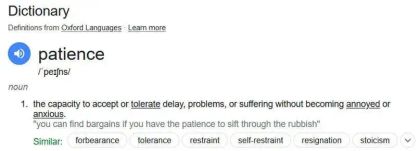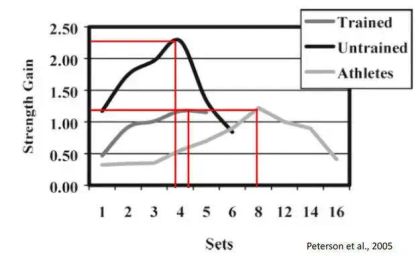I started training for a marathon 5 months ago. What I found the hardest isn't recovery, physical strain or nutrition. It's pacing: choosing the ideal speed to run throughout the long runs. Since I want to complete it as fast as possible, my first impulse is to rush ahead—a terrible idea. I’d crash after two or three miles (with 10 or more left to go), struggling to finish the run at all. My time to finish turned out a lot worse, compared to if I had started at a slower pace.
This problem isn’t exclusive to running marathons: it's a challenge with any long-term goal, like weight-loss or building a business. For ambitious people like us, pacing is difficult because we want results fast. Once our mind is set, we don’t want to mess around and get things done - but that drive also has a dark side.
The danger of ambition
In his book “Mastery”, George Leonard calls it the “Obsessive.” The Obsessive gets consumed with his goal, and rushes ahead—like a runner trying to win a marathon on the first mile. First progress is swift, but the next plateau is only a matter of time. He tries to work even harder, not realizing it won’t shortcut the process. At some point, he quits—often in a catastrophic failure or setback. Here are some examples of what this looks like in practice:
- Jumping into radical diets to lose weight fast (leading to the Yoyo cycle)
- Bumping up work to 8, 12, 14 hours or more, trying to get more productive (leading to burnout)
- Diving into extreme workout routines (leading to injuries and undermining long-term fitness)
- Skipping necessary recovery (impairing muscle repair and mental acuity, essential for sustained success)
- Overlooking sleep and stress management (which sabotages both physical health and professional efficiency)
In short, you’re trying to rush a goal you can't rush and as a result, you never make it to the finish line. Real, lasting success comes from pacing yourself according to your goal. Let’s dive into how to do that.
1) Long-term thinking
In the same book, Leonard compares the Obsessive with the mindset of the Master: The master sees the big picture, and plans for years and decades ahead. He doesn’t look for short-cuts. Instead, he focuses on mastering the game, and finding ways to love it. He avoids discouragement by expecting plateaus and challenges. That’s the real meaning of patience. Patience isn’t about lack of ambition, passivity or complacency - it’s the trait that’ll allow you to stick to the work, even when it gets tough.

If you think this only applies to craftsmen, artists or kung-fu masters, think again. You can adapt this mindset for every endeavor that’s a) important and b) requiring time to build.
And there's no better example than your health: You don’t master it through a 6-week diet or challenge - it’s a vital domain throughout your entire life.
Get clear about what ideal health looks like to you:
- How do you want to feel?
- What do you want to look like?
- What would become possible for you in your business and private life?
Then, commit to the mastery mindset.
2) 85% Rule
“If you tell most A-type athletes to run at their 85% capacity, they will run faster than if you tell them to run at 100%, because it’s more about relaxation, and form, and optimizing the muscles in the right way” - Hugh Jackman
If you watch world-class athletes like:
- Usain Bolt
- Stephen Curry
- Michael Phelps
... you'll notice how calm they are. They seem unfazed by their competition and perform in complete flow. According to Hugh Jackman, the 85% rule is one of the keys to that: Through smart pacing, they optimize efficiency and avoid exhaustion.
But that doesn't just apply to athletes: You can do the same at work or when you're trying to lose weight. Aim to work at about 85% of your capacity, like an athlete who doesn't go all out in every training session. You'll optimize your pace, without exhausting.
3) Law of diminishing returns
At some point, more work doesn't necessarily create more results. For example, the first 5 sets you do for a muscle group will lead to more growth than the next 5. This is called the Law of Diminishing Returns. For optimal results, this sacrifice may still be worthwhile. It's like a bodybuilder doing 10 sets instead of 5: Despite the first 5 sets being more efficient, he'll make more progress through the increased workload. Yet, there’s a point where you need to stop, or your results start to get worse.

Powerlifters refer to this as "overtraining" - when the load gets so high, that the body is unable to recover.
Here are signs that you’ve entered that zone:
- Poor sleep
- Mood imbalances
- Loss of motivation
- Decreased performance
- Longer recovery times than usual
The athlete must adapt his program or risk worsening symptoms. Pushing through without changes could lead to injury as the worst outcome. Again, this doesn’t just apply to athletes. This principle will serve you well, no matter if you’re building a business, writing a book or improving your fitness.
Remember that the goal you're trying to achieve is not a sprint. It's more like you're aiming to run 10 marathons in a row. And the first objective if you want to win that race is to be able to finish it.
If you're a driven entrepreneur or creator and looking to:
- Manage stress in an efficient manner for better health and productivity
- Drop up to 20lbs in 90 days, without the diet-hamster wheel
- Reach your dream physique in just 2 hours per week
Click HERE for a free 30-minute strategy call where I'll show you exactly how it works.

